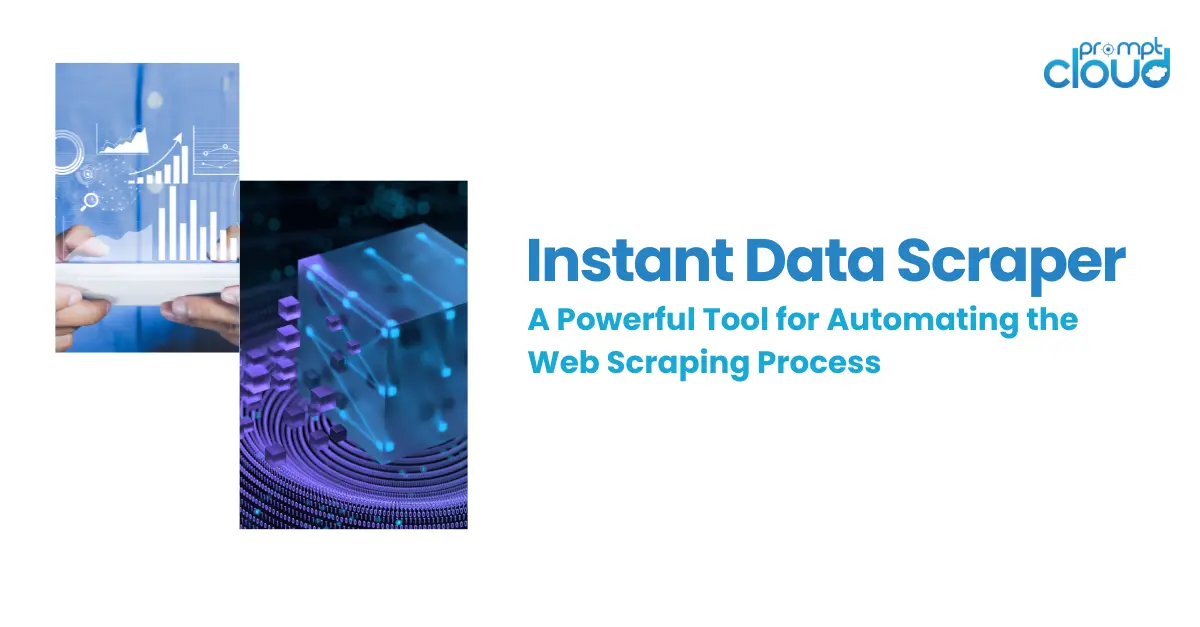
Introduction to Finance Data Scraping
Finance data scraping refers to the utilization of automated techniques for retrieving important financial information from diverse online sources. Businesses and analysts employ advanced tools or coding scripts to collect data including stock values, market tendencies, and economic metrics on the Internet. By doing so, they are able to access up-to-date data that leads to enhanced prediction accuracy and thorough market evaluation. The data is often used for:
- Tracking stock performance
- Analyzing company financials
- Observing market behaviors
- Identifying investment opportunities
- Conducting quantitative research
Obtaining financial data through scrapping has the potential to significantly enhance our investment tactics and improve the calibration of our financial models. This, in turn, enables us to make more astute decisions rapidly in the dynamic field of finance.
Understanding the Basics of Financial Market Analysis
Analyzing financial markets involves using multiple techniques to assess potential investments and identify market tendencies. Analysts utilize two primary approaches:
- Fundamental Analysis: This looks at economic indicators, industry conditions, and company financials to judge a stock’s intrinsic value.
- Technical Analysis: Here, historical market data and statistical trends, like price movements and volume, are scrutinized to forecast future market behavior.
The two strategies share an identical goal—they enable investors to make prudent decisions concerning capital placement and enhancing their portfolio’s overall yield. Proficient comprehension of these key principles simplifies the process of interpreting complicated financial databases substantially.
Tools and Techniques for Effective Data Scraping
For efficiently scraping financial data, one employs a variety of tools and methods. Starting with programming languages like Python, which has libraries such as Beautiful Soup and Scrapy, analysts automate data extraction processes.
Web scraping frameworks, including Selenium, mimic user interactions to retrieve data behind logins or interact with JavaScript-heavy sites. Additionally, professional data scraping services offer tailored solutions, leveraging APIs from financial data providers, ensuring compliance with legal frameworks. Effective scraping also involves:
- Utilizing headless browsers for stealth and improved data access
- Implementing CAPTCHA-solving techniques for uninterrupted scraping
- Utilizing proxy servers to avoid IP bans and simulate different locales
- Regular expression skills to clean and filter extracted data
- Understanding of financial markets data structure for targeted scraping
What are the best web sources for financial data?
Investors and analysts often seek reliable financial data for informed decision-making. Below are the top web sources for such data:
- Bloomberg: Offers comprehensive financial news, data, and analytics.
- Yahoo! Finance: Provides free financial information, including stock quotes and historical data.
- Reuters: Known for up-to-date news on financial markets worldwide.
- Morningstar: Esteemed for high-quality insights on funds and stocks.
- Investing.com: Features a broad range of tools for market analysis.
- Seeking Alpha: Delivers stock market insights and financial analysis.
- Google Finance: A user-friendly platform with financial news, market trends, and stock price information.
- SEC EDGAR: The official source for U.S. securities filings and reports.
- FT.com (Financial Times): Offers global financial news along with relevant data.
- Zacks Investment Research: Provides stock research, analysis, and recommendations.
What are the use cases of Finance Data Scraping?
Finance data scraping serves numerous functional areas such as:
- Continuous monitoring of stock prices for timely buy/sell decisions.
- Aggregating financial news from various sources to gauge market sentiment.
- Extracting data from financial statements for competitive analysis.
- Tracking currency exchange rates for forex trading strategies.
- Gathering real estate listings for market trend analysis and investment opportunities.
- Collecting commodity prices to forecast price movements and hedge risks.
- Analyzing consumer credit data to understand borrowing trends and assess credit risk.
Challenges and Ethical Considerations
While involved in the process of finance data scraping for market analysis, numerous difficulties and moral concerns present themselves:
- Data Accuracy: Ensuring the data scraped is accurate and up-to-date is critical. Inaccurate data can lead to misinformed decisions and analyses.
- Legal Compliance: Abiding by laws and regulations that govern data scraping practices, including respecting websites’ terms of service and privacy regulations like GDPR.
- Data Privacy: Financial data often contains sensitive information. Taking good care of such sensitive information is not only important but vital in maintaining the trust and confidence placed on us by individuals and organizations. This involves handling it responsibly while prioritizing their right to privacy and keeping their information strictly confidential.
- Transparency: Organizations must be transparent about their data scraping methods and the intended use of the data to avoid mistrust and potential reputational damage.
- Over-reliance on Automation: Over-reliance on automated scraping tools can result in a failure to capture nuanced financial information, leading to incomplete analysis.
- Systematic Bias: Algorithms used for scraping and analysis must be scrutinized to prevent systematic bias that could misrepresent market conditions.
These factors necessitate a balanced approach between leveraging technology for enhanced financial analysis and maintaining ethical standards.
Future Trends in Finance Data Scraping for Market Analysis
The financial sector’s ongoing innovation has led to the development of increasingly advanced data scraping techniques in order to satisfy the need for thorough market analysis. Looking ahead:
- Integration of Artificial Intelligence and Machine Learning: AI and ML will further refine data scraping methodologies, enabling predictive analytics and better decision-making.
- Real-time Data Extraction: The focus will shift to real-time data scraping, providing market analysts with instantaneous insights.
- More Stringent Data Privacy Policies: Regulations such as GDPR will shape future scraping tools to be more privacy-centric while extracting data.
- Advanced Anomaly Detection: Enhanced algorithms will be developed for quicker identification of market anomalies through scraped data.
- Decentralized Finance (DeFi) Data Scraping: As DeFi grows, there will be a surge in scraping non-traditional financial datasets from blockchain networks.
FAQS
What is financial data scraping?
Financial data scraping refers to the organized and thorough extraction of substantial amounts of financial information from digital resources, including websites and databases. Generally carried out for analytical purposes, this procedure collects numerous data elements, spanning stock prices, trade volumes, company fundamentals, and macroeconomic statistics. Professionals rely on assorted tools – from rudimentary scripts created in coding languages like Python or R to sophisticated software programs engineered solely for data scraping assignments – to gather and arrange the data in well-organized structures conducive to additional scrutiny and assessment. Due to its importance in guiding choice-making procedures throughout several industries, financial data scraping has grown into a vital competency in the domains of finance, research, and analytics.
Is it illegal to scrape data?
While data scraping per se is neither categorically lawful nor unlawful, individuals engaged in such practices should remain cognizant of relevant legal considerations and ethical principles governing their actions. To begin with, prospective practitioners must carefully review the targeted website’s terms of service to ascertain whether explicit prohibitions against scraping have been established. Noncompliance may expose violators to potential civil liabilities or even criminal sanctions depending upon jurisdictional specificities. Moreover, those intending to reproduce, distribute, or otherwise disseminate the acquired data ought to meticulously observe applicable copyright regulations and extend proper attributions where warranted, soliciting consent whenever necessary. Finally, actors must exercise restraint in request submission rates so as to prevent undue strain on servers and abstain from malicious acts capable of instigating cybersecurity incidents, both of which constitute infringements punishable under prevailing computer fraud statutes. By internalizing these salient considerations and conducting oneself ethically, responsible parties can effectively manage risks attendant to data scraping operations.
Where is the best place to scrape financial data?
Identifying the most suitable venue for procuring financial data hinges critically upon user-specific demands and preferences. A plethora of options exist, each offering distinct advantages commensurate with varying levels of functionality, customizability, and affordability. Prominent examples include Yahoo Finance, Alpha Vantage, Finnhub, and IEX Cloud, all four providing free and premium tiers of API access tailored to accommodate disparate usage scenarios. Conversely, entities requiring enhanced control over data parameters, granularity, or presentation modalities may find value in subscription-based services offered by industry titans such as Bloomberg, FactSet, or Refinitiv. Alternatively, regulators, governments, and multilateral institutions frequently release authoritative datasets through dedicated online interfaces or public data portals – e.g., U.S. Securities and Exchange Commission (SEC), Federal Reserve Bank, World Bank, or International Monetary Fund – presenting yet another avenue for securing high-quality financial intelligence. Evaluative criteria comprising data accuracy, scope, periodicity, pricing structure, and ease of retrieval ultimately dictate the selection of the most fitting provider vis-à-vis individualized project requisites.
Is scraping Yahoo Finance allowed?
According to Yahoo Finance’s Terms of Service, visitors are permitted to download select segments of the platform’s publicly accessible content, provided that no misleading framing techniques are deployed in doing so. That stated, Yahoo Finance reserves the prerogative to curtail or restrict offending party’s access privileges should their behavior prove detrimental or obstructive. Excessive reliance on conventional scraping approaches may engender complications stemming from implementation of CAPTCHA protocols or dynamic IP address filtering, thereby impeding successful execution. As a workaround, interested parties may opt instead to leverage Yahoo Finance’s officially endorsed query language interface, dubbed YQL (Yahoo Query Language). This solution facilitates streamlined retrieval of timely and historically grounded financial data without necessitating recourse to intricate web scraping maneuvers. Adopting this compliant strategy affords greater predictability and consistency compared to traditional scraping techniques subject to frequent modifications in underlying site architectural features.




















